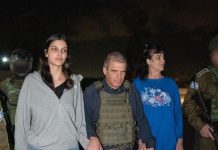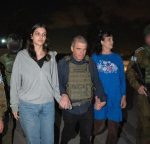By Yochanan Gordon
Today is Lag BaOmer. By the time this piece is read, hundreds of thousands of Jews throughout Israel and the world over would have made the pilgrimage to the gravesite of the holy Tanna Rebbi Shimon bar Yochai. Yeshivos the world over are accustomed to take Lag BaOmer trips, distribute bows and arrows, and build bonfires. The joy associated with this day is unprecedented. Why?
If we look to Chazal to determine the appropriate temperament with regards to observing a yahrzeit, we would find a glaring contradiction. Rebbi Shimon Bar Yochai’s yahrzeit elicits this great level of joy. On the other extreme there is Moshe Rabbeinu on whose yahrzeit Chazal advise that it is appropriate to fast. On Rosh Chodesh Av, the day on which Aharon HaKohen passed, fasting is advised though it is normally prohibited on rosh chodesh. So this accentuates our initial question: what is the proper conduct befitting the passing of a leader?
Rav Tzadok HaKohen writes that we find a clear distinction between those yahrzeits on which Chazal advise fasting and those on which we express joy. The yahrzeits on which it is befitting to fast are in commemoration of tzaddikim that are rooted in the written Torah. And although there are dates throughout the calendar, commemorating the death of great people that are distant from association with the era of the giving of the written Torah–such as those who were killed in Beitar–that is because they died a tragic death and were not taken naturally and peacefully upon their beds; celebrating their passing would be insensitive due to the circumstances under which they died. Moshe and Aharon, however, are rooted in the written Torah, and Rebbi Akiva would be the counterpart candidate representing the paradigmatic personality on the oral Torah, as the Arizal notes in his teachings.
Here Rav Tzadok cites a Midrash in Bamidbar Chapter 14 on the words, “Baalei Asufos,” meaning compilers or the masters of gathering, which intimates the passing of chachamim. The Midrash opens with a question: At what point does Torah become implanted within a student? The Midrash answers: at the time of his teacher’s passing. All the while that the chachamim are alive, a person depends upon him at every crossroads and with the onset of every doubt and uncertainty, saying, “I will go and ask my teacher.” When his teacher passes away, he has no choice but to toil day and night to uphold his teachings and walk along the path that he would have advised had he been around. Students can only first own the Torah once their teachers are no longer there to guide them.
It would seem that the personality whose yahrzeit should elicit this great expression of joy would be Rebbi Akiva who we said is the paradigm of the oral Torah. However, since Rebbi Akiva died a tragic death, it would be inappropriate to celebrate the anniversary of his passing and therefore we instead celebrate the passing of his chief disciple, Rebbi Shimon bar Yochai, as the Gemara in Gittin 67a attests.
Each week of Sefirah, we work on improving another character trait in our progression towards accepting the Torah as the chosen nation. These character traits are called sefiros, which are broken up into seven with regards to the counting of the 49 days of sefiras ha’omer, since each sefirah of the seven sefiros contains a sampling of the other subsequent sefiros, and if we square seven the product is 49. In addition, the seven sefiros correspond to the seven shepherds, namely, Avraham, Yitzchak, Yaakov, Moshe, Aharon, Yosef, and Dovid. Each of these personalities represents one of those character traits, in the order it was presented. The week of Lag BaOmer corresponds to the middah of hod and the day of Lag BaOmer corresponds to the middah of hod she’be’hod which is the middah of Aharon Hakohen.
Although it is befitting to fast on the yahrzeit of Aharon Hakohen since he is rooted in the written Torah, in a sense, however, in relation to Moshe Rabbeinu, Aharon is a representative of the oral Torah. As the Eibishter told Moshe when they were going to Pharaoh, “He [Aharon] will be your peh [mouth]. Moshe, due to the grandiosity of his soul and persona, had a speech impediment. His inability to speak is a result of his origination in the written Torah on which there is a prohibition of reading by heart. By contrast, Aharon is able to articulate and express its inherent ideas and relay it to the people. It is in this sense that Aharon relates to the oral Torah and the reason why he is aligned with the week of hod and the day of hod she’be’hod.
Rebbi Shimon, being the prime disciple of Rebbi Akiva and having successfully carried the yardstick of his rebbi further, is befitting this day of celebration as it follows the notion of the oral Torah in contradistinction to the written Torah. Specifically on this day, commemorating the loss of this great and holy Tanna, we are first able to internalize and become one with his Torah, as is explained at length in Zohar.
Here Rav Tzadok begins to conclude: Rebbi Akiva is the counterpart to Moshe in his representation of the oral Torah. The Midrash records Moshe asking why Hashem wanted to give the Torah through him and not through Rebbi Akiva. In another place, Moshe seems inferior to Rebbi Akiva when he sat and listened to a shiur he was delivering in the heavenly academy. So we see these two great personalities encountering each other repeatedly and it is precisely because they represent two halves of the same soul. Rav Tzadok points out, given the circumstances behind Rebbi Akiva’s death, it would be inappropriate to celebrate the anniversary of his passing. He then points out that Rebbi Akiva’s father’s name was Yosef and being ben Yosef, Rav Tzadok equates him with Mashiach ben Yosef who, it is said in some sources, has to die in war prior to the revelation of the Davidic Mashiach–and it happens for the good of the Jewish people. Therefore, the Yerushalmi states, “Rebbi Akiva said to Rashbi, ‘It is enough that I and your Creator recognize your strength,’ that no one other than Rebbi Akiva and G‑d, during his time, recognized his inner holiness and sanctity, since he was the root of the oral Torah.
So every year with the onset of this sacrosanct day, everyone, on his or her respective level, is able to grasp the Torah that descends in his merit; therefore it is observed as a holiday. v
This article is based on Sefer Pri Tzadik, Sefer Sh’mos.















